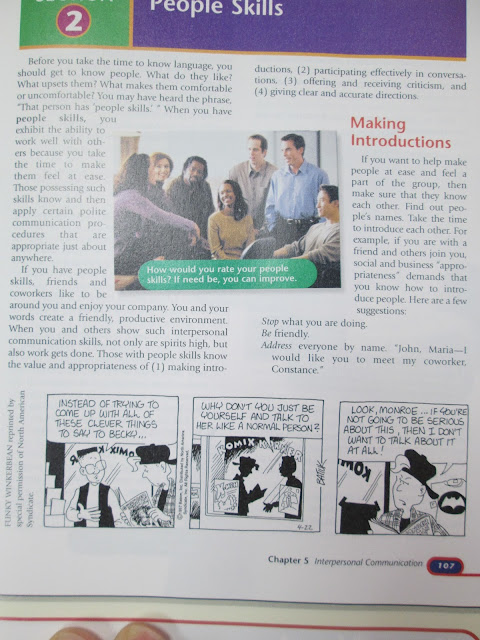Thursday, October 20, 2016
Monday, October 3, 2016
SALES CONVERSATION AND BUSINESS COMMUNICATION
Factors
such as language and culture greatly affect the success of business. Being able
to effectively communicate ideas and strategies can be challenging in a new
business environment. Determining the importance of language by a company is
crucial to its success. Studying another language helps to understand the
culture of the studied language which will assist in a corporation’s decision
making process. English is a popular language in conducting business; however,
communicating in other languages is gaining popularity.
Due to the
fact that Business English is so important, companies require increasing
numbers of their employees to have knowledge of this language. This knowledge
is no longer the preserve of people in positions of responsibility; technicians
who have to phone for support in another country and receptionists who receive
foreign delegations also need to be able to do certain parts of their jobs in
English. Companies therefore allocate a proportion of their training budgets to
business English courses. This more diverse demand has led to the development
of training courses which specialize in exactly what the delegate needs to know
in order to be able to function correctly at work.
As Business
is done in English between people who are not necessarily native speakers of
the language, a simplified version of English is now emerging. This version is
sometimes called ‘standard’ or ‘international’ English. This new type of
English for Business purposes is trimmed of all the non-essential grammatical
structures and has a reduced common vocabulary. Phrasal verbs such as ‘go on ‘
and ‘set up’ are not as important as ‘continue ‘ and ‘create’, for example, and
knowledge of the difference between the present perfect and the past simple is
no longer a priority in the training room.
The
primordial objective of the business person using international business
English is to communicate efficiently and effectively. Native speakers with
their fast delivery, colloquial expressions and unclear pronunciation are
feared in the business place as they have become the most difficult people to
understand. The result of this is that native speakers may have to start
learning how to speak a more communication-friendly form of their own language
“international English”.
QUOTES
ABOUT SALLING. *You can be called by the professor in order to participate.
- please study this information. (Quotes)
"Begin
by always expecting good things to happen."
--Tom
Hopkins
"For
every sale you miss because you're too enthusiastic, you will miss a hundred
because you're not enthusiastic enough."
--Zig
Ziglar
"All
things being equal, people will do business with, and refer business to, those
people they know, like, and trust."
--Bob Burg
"Treat
objections as requests for further information."
--Brian
Tracy
"The
best way to sell yourself to others is first to sell the others to
yourself."
--Napoleon
Hill
"Ninety
percent of selling is conviction and 10 percent is persuasion."
--Shiv
Khera
"Obstacles
are necessary for success because in selling, as in all careers of importance,
victory comes only after many struggles and countless defeats."
--Og
Mandino
"One
of the best predictors of ultimate success … isn't natural talent or even
industry expertise, but how you explain your failures and rejections."
--Daniel H.
Pink
"If
you are not taking care of your customer, your competitor will."
--Bob Hooey
"To
build a long-term, successful enterprise, when you don't close a sale, open a
relationship."
--Patricia
Fripp
Subscribe to:
Comments (Atom)












